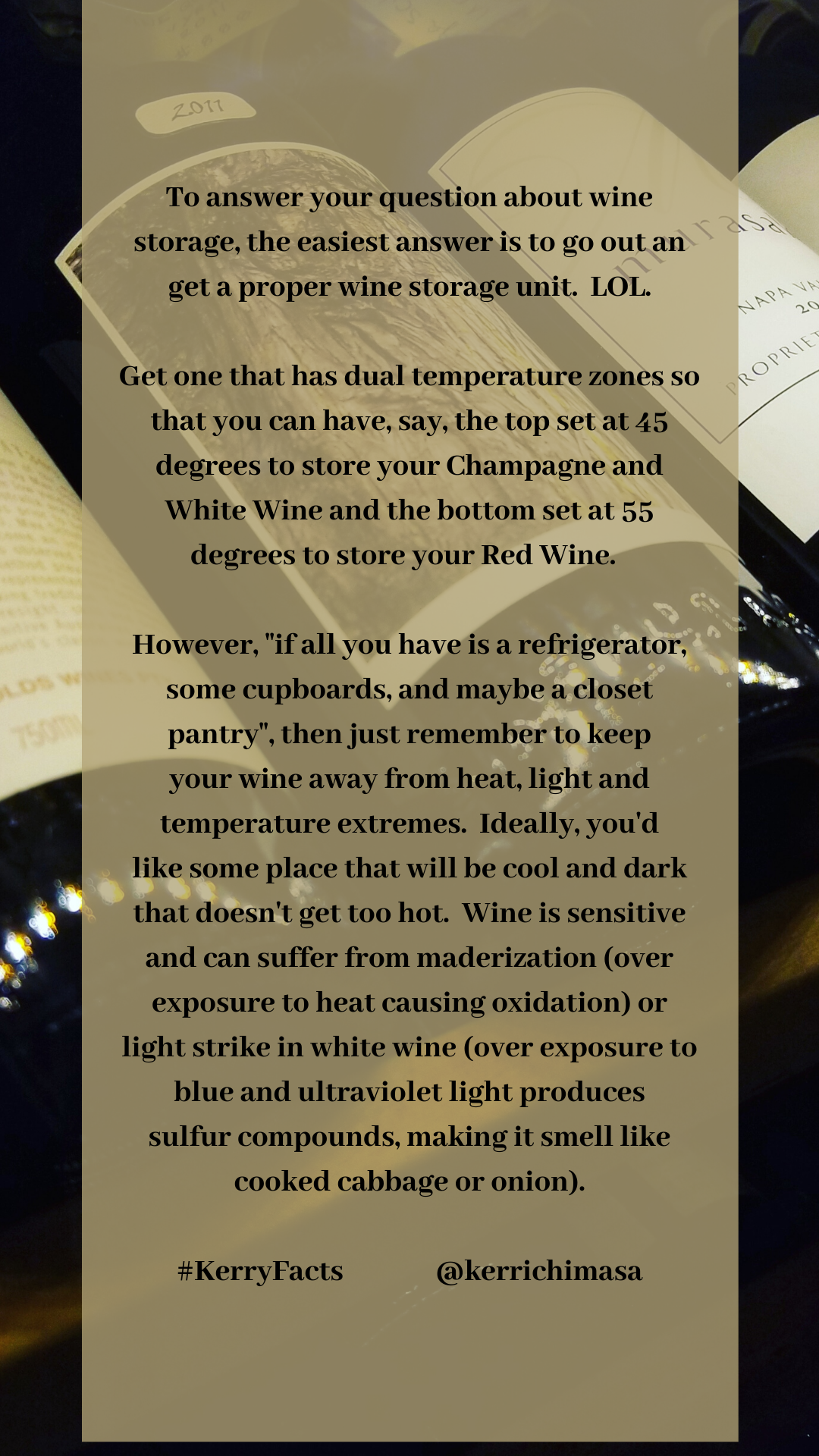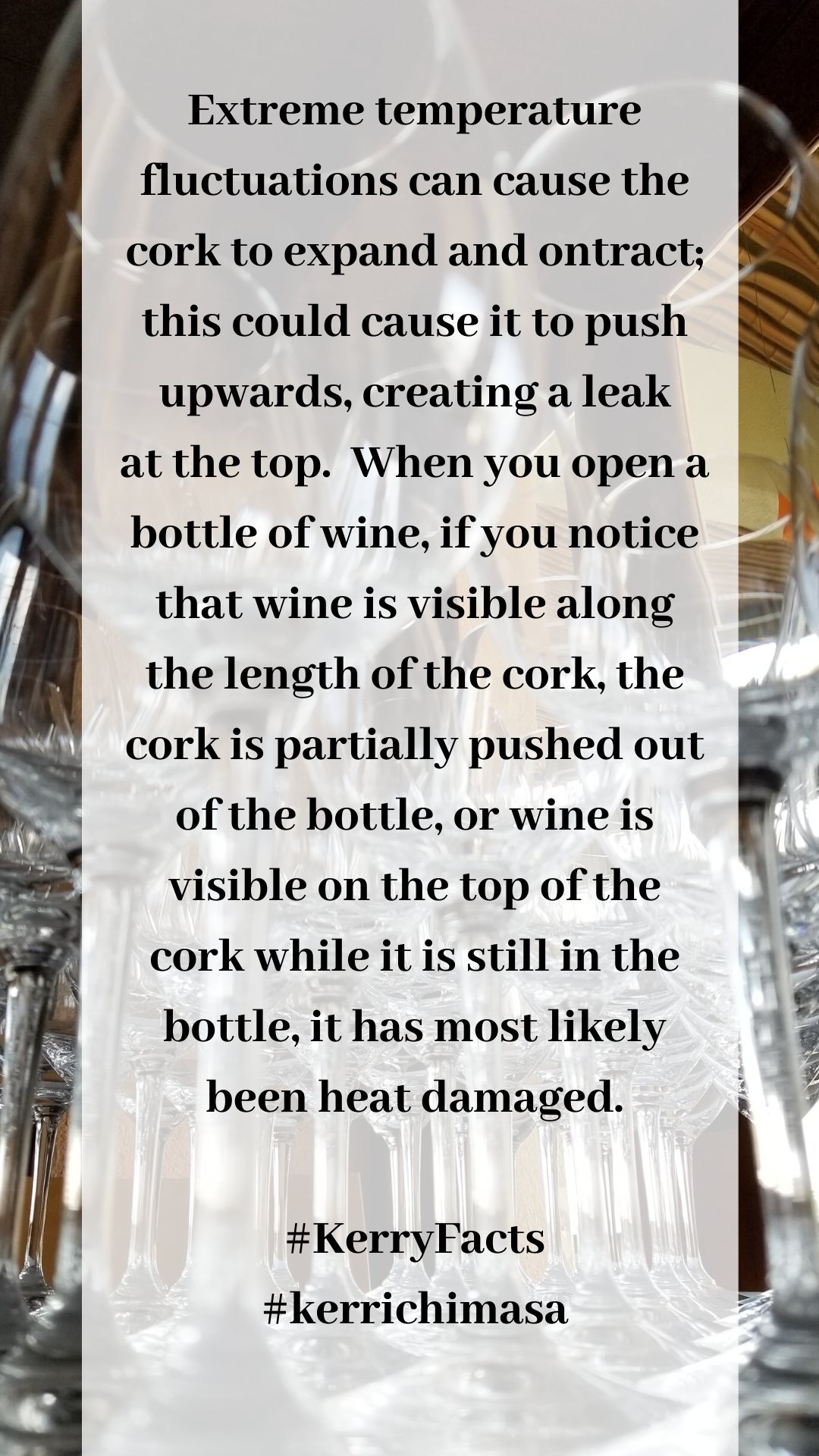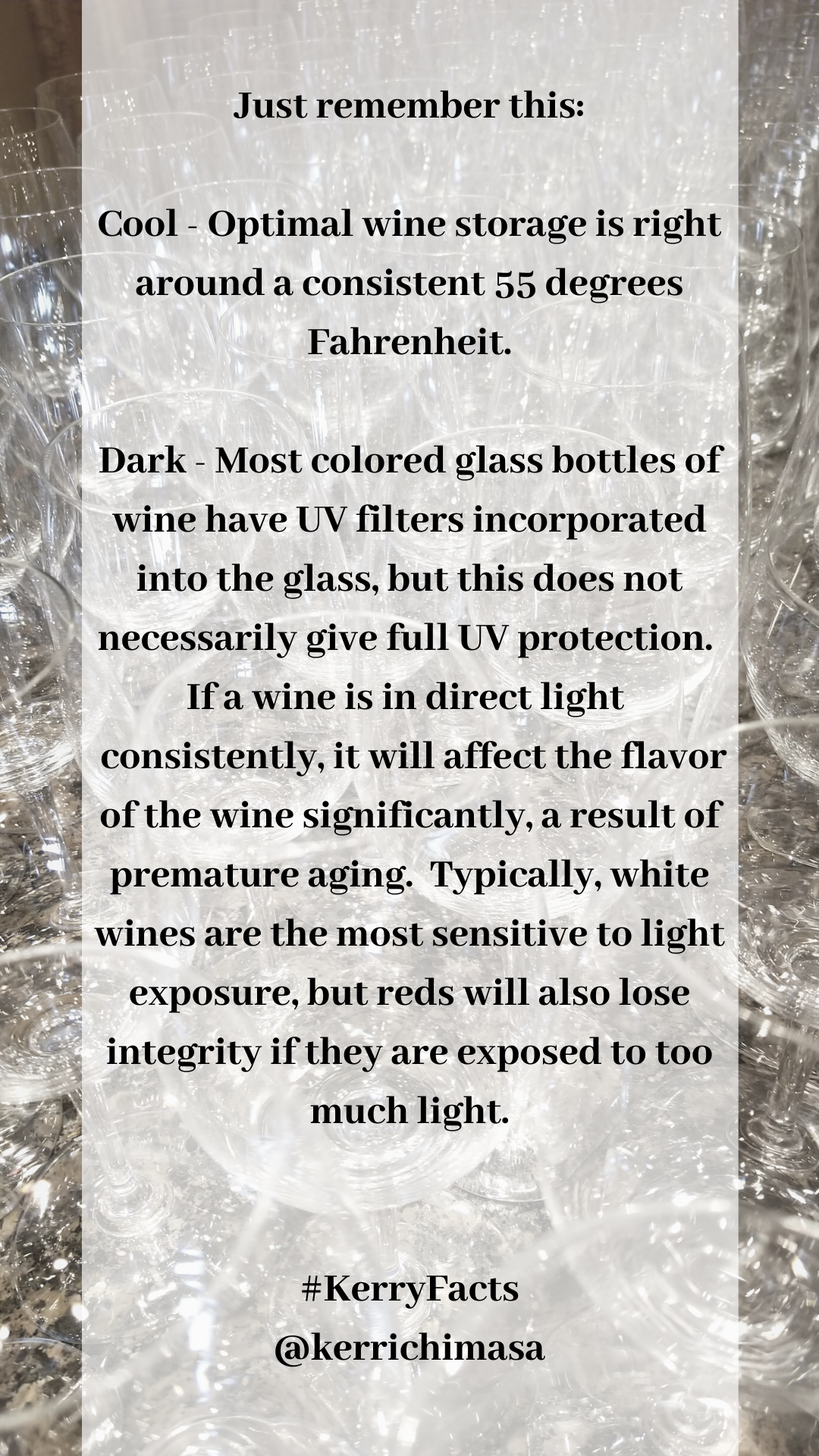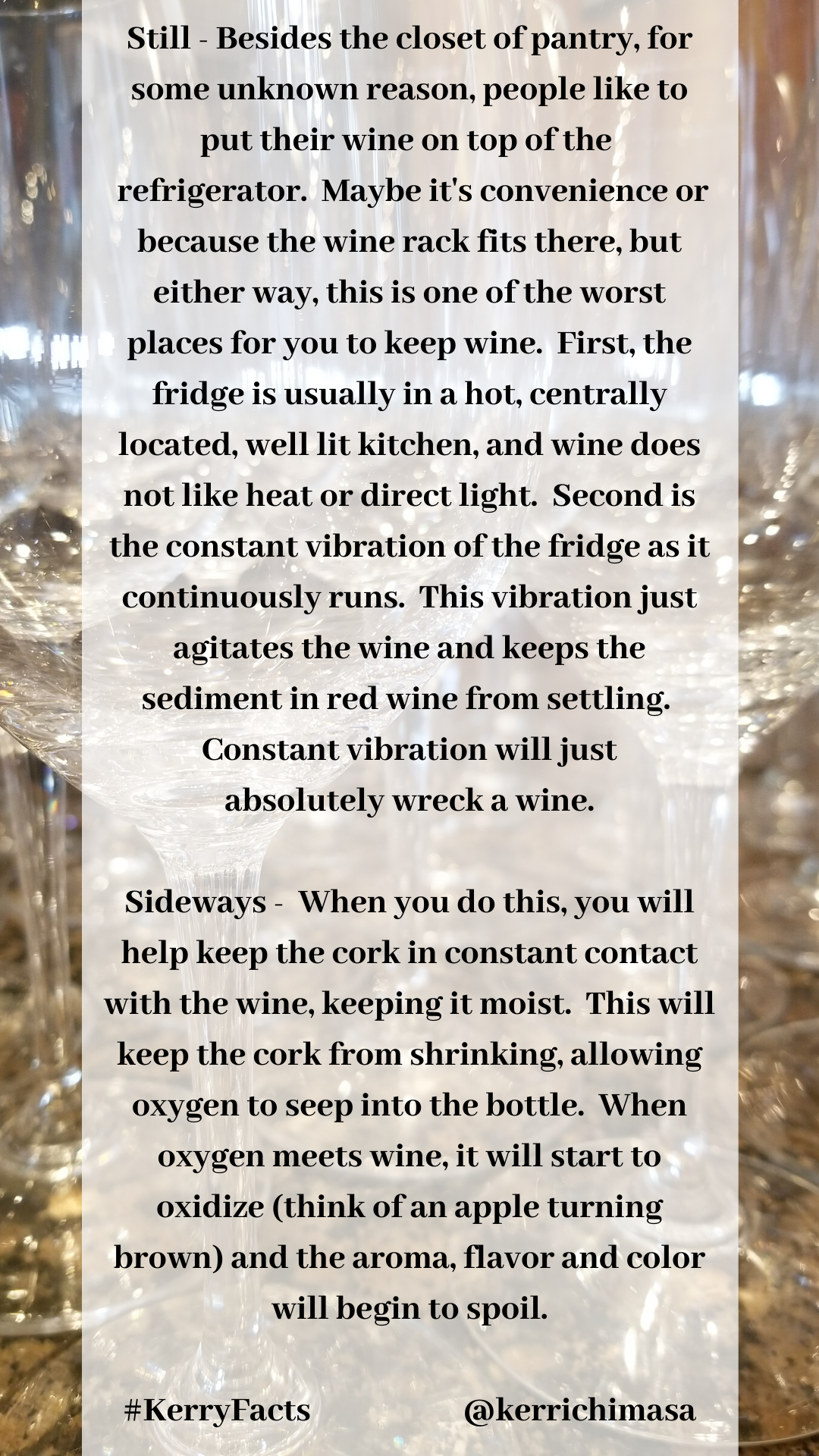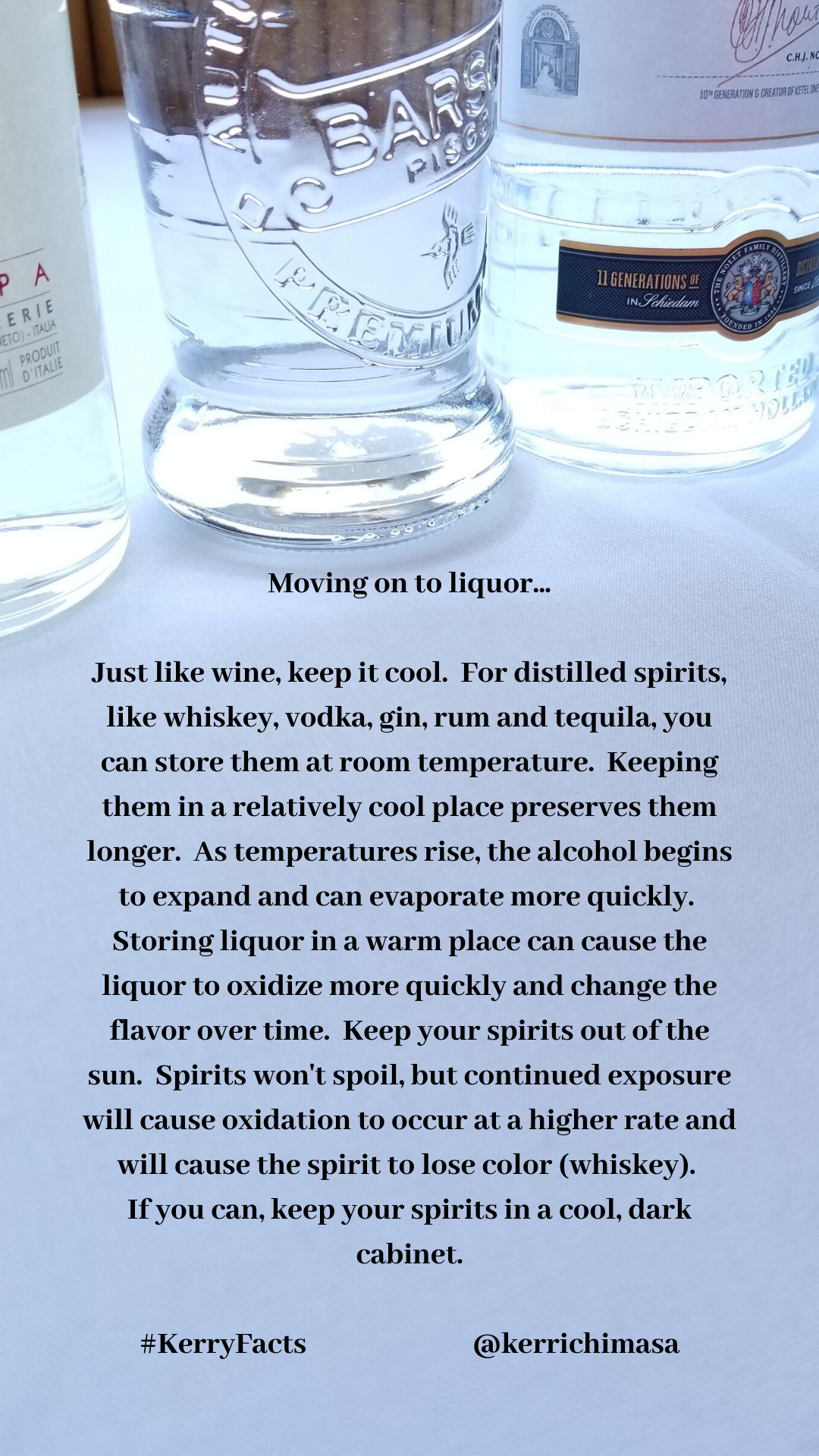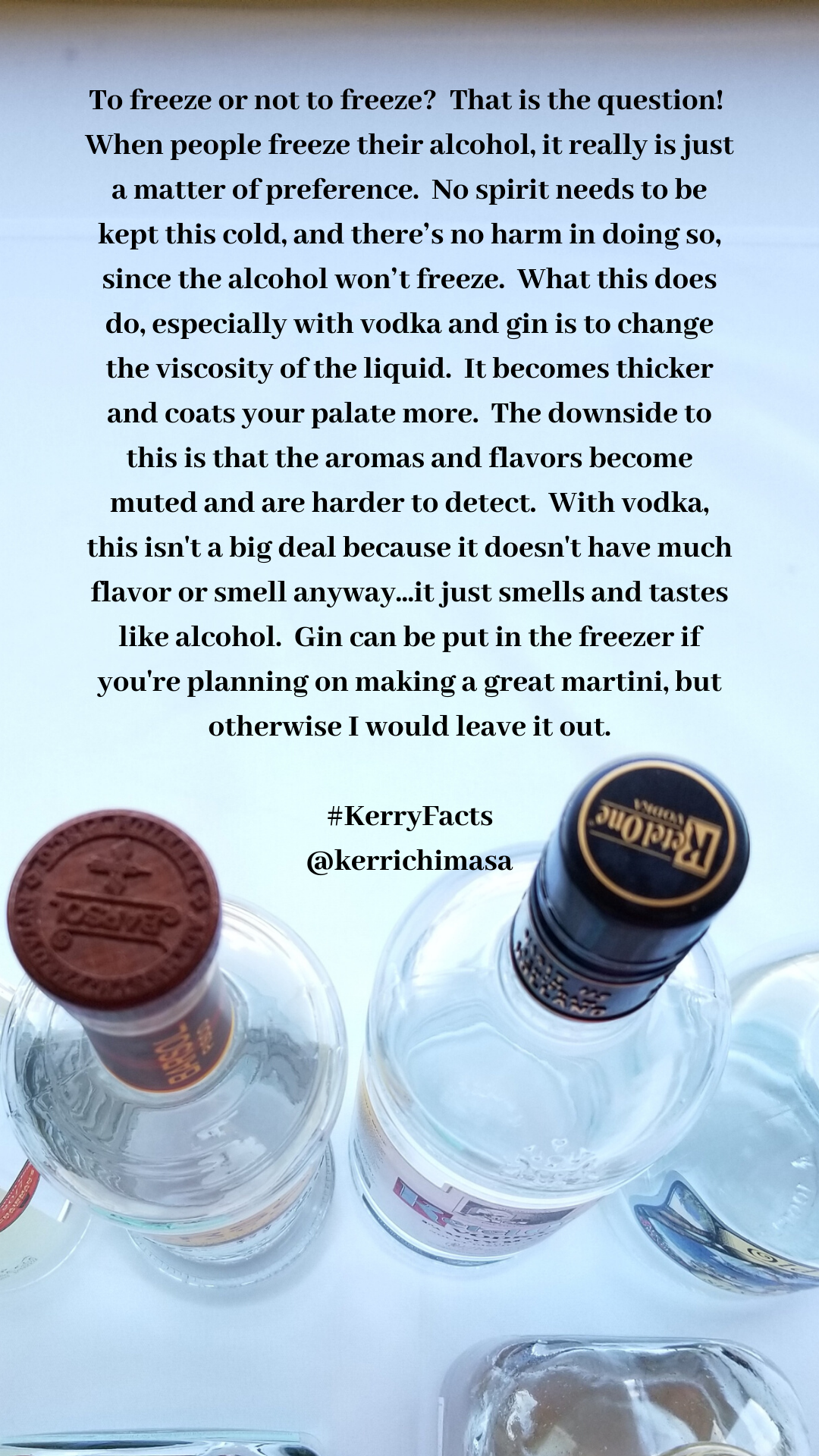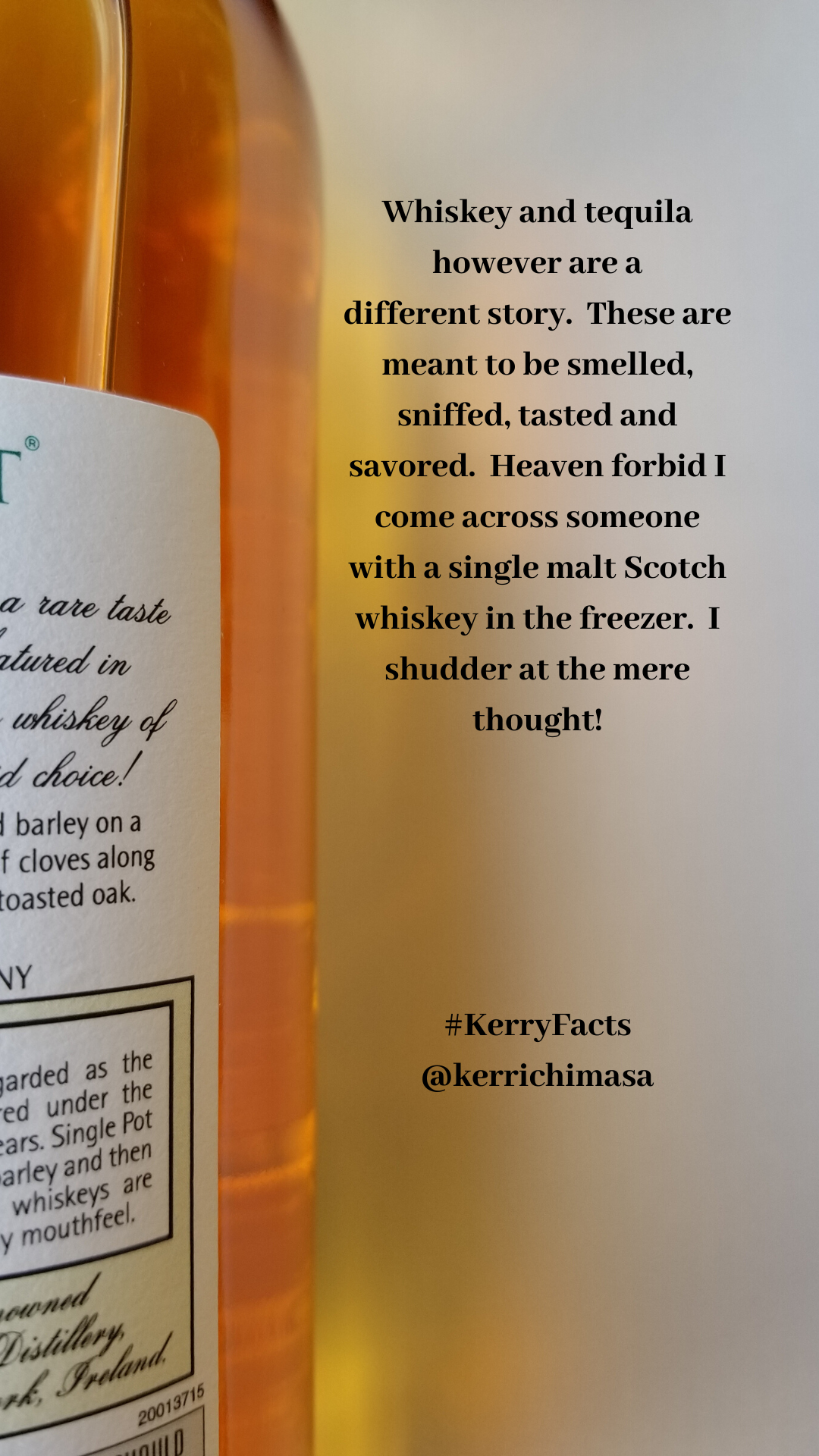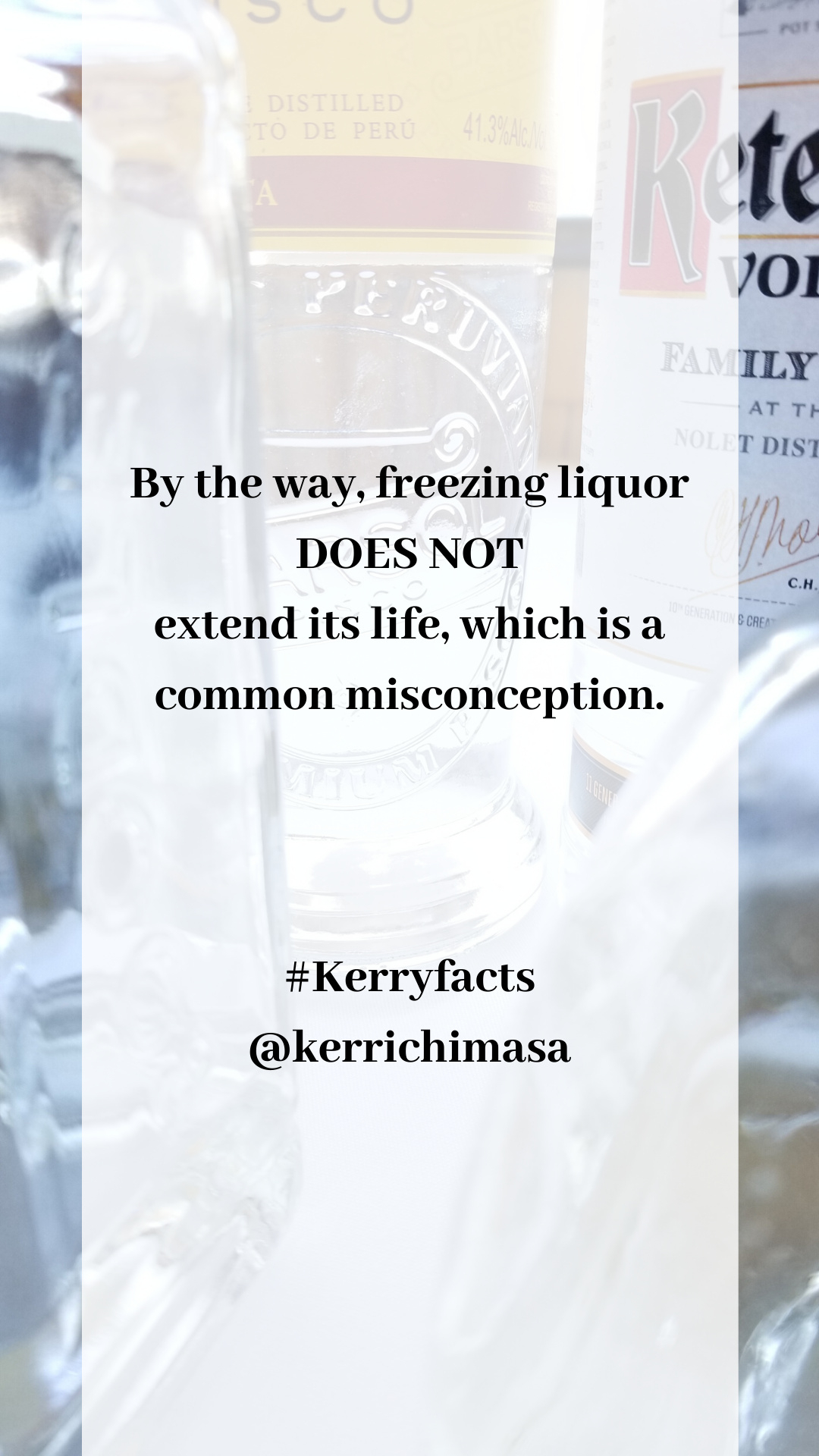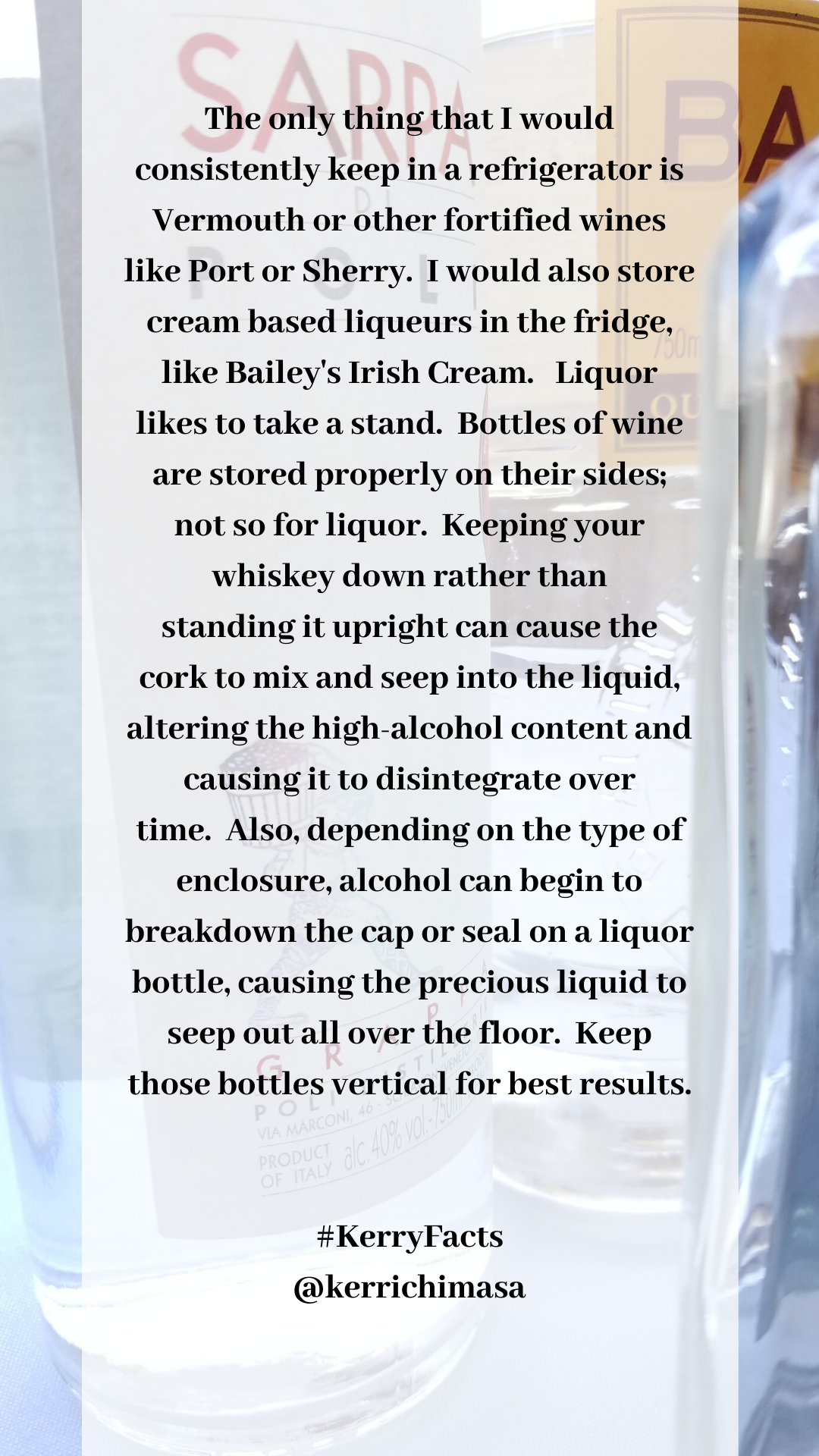#KerryFacts - How should you store wine or liquor at home?
To answer your question about wine storage, the easiest answer is to go out an get a proper wine storage unit. LOL. Get one that has dual temperature zones so that you can have, say, the top set at 45 degrees to store your Champagne and White Wine and the bottom set at 55 degrees to store your Red Wine.
However, "if all you have is a refrigerator, some cupboards, and maybe a closet pantry", then just remember to keep your wine away from heat, light and temperature extremes. Ideally, you'd like some place that will be cool and dark that doesn't get too hot. Wine is sensitive and can suffer from maderization (over exposure to heat causing oxidation) or light strike in white wine (over exposure to blue and ultraviolet light produces sulfur compounds, making it smell like cooked cabbage or onion).
Extreme temperature fluctuations can cause the cork to expand and contract; this could cause it to push upwards, creating a leak at the top. When you open a bottle of wine, if you notice that wine is visible along the length of the cork, the cork is partially pushed out of the bottle, or wine is visible on the top of the cork while it is still in the bottle, it has most likely been heat damaged.
Just remember this:
- Cool - Optimal wine storage is right around a consistent 55 degrees Fahrenheit.
- Dark - Most colored glass bottles of wine have UV filters incorporated into the glass, but this does not necessarily give full UV protection. If a wine is in direct light consistently, it will affect the flavor of the wine significantly, a result of premature aging. Typically, white wines are the most sensitive to light exposure, but reds will also lose integrity if they are exposed to too much light.
- Still - Besides the closet of pantry, for some unknown reason, people like to put their wine on top of the refrigerator. Maybe it's convenience or because the wine rack fits there, but either way, this is one of the worst places for you to keep wine. First, the fridge is usually in a hot, centrally located, well lit kitchen, and wine does not like heat or direct light. Second is the constant vibration of the fridge as it continuously runs. This vibration just agitates the wine and keeps the sediment in red wine from settling. Constant vibration will just absolutely wreck a wine.
- Sideways - When you do this, you will help keep the cork in constant contact with the wine, keeping it moist. This will keep the cork from shrinking, allowing oxygen to seep into the bottle. When oxygen meets wine, it will start to oxidize (think of an apple turning brown) and the aroma, flavor and color will begin to spoil.
Moving on to liquor...
Just like wine, keep it cool. For distilled spirits, like whiskey, vodka, gin, rum and tequila, you can store them at room temperature. Keeping them in a relatively cool place preserves them longer. As temperatures rise, the alcohol begins to expand and can evaporate more quickly. Storing liquor in a warm place can cause the liquor to oxidize more quickly and change the flavor over time. Keep your spirits out of the sun. Spirits won't spoil, but continued exposure will cause oxidation to occur at a higher rate and will cause the spirit to lose color (whiskey). If you can, keep your spirits in a cool, dark cabinet.
To freeze or not to freeze? That is the question! When people freeze their alcohol, it really is just a matter of preference. No spirit needs to be kept this cold, and there’s no harm in doing so, since the alcohol won’t freeze. What this does do, especially with vodka and gin is to change the viscosity of the liquid. It becomes thicker and coats your palate more. The downside to this is that the aromas and flavors become muted and are harder to detect. With vodka, this isn't a big deal because it doesn't have much flavor or smell anyway...it just smells and tastes like alcohol. Gin can be put in the freezer if you're planning on making a great martini, but otherwise I would leave it out.
Whiskey and tequila however are a different story. These are meant to be smelled, sniffed, tasted and savored. Heaven forbid I come across someone with a single malt Scotch whiskey in the freezer. I shudder at the mere thought!
By the way, freezing liquor DOES NOT extend its life, which is a common misconception.
The only thing that I would consistently keep in a refrigerator is Vermouth or other fortified wines like Port or Sherry. I would also store cream based liqueurs in the fridge, like Bailey's Irish Cream.
Liquor likes to take a stand. Bottles of wine are stored properly on their sides; not so for liquor. Keeping your whiskey down rather than standing it upright can cause the cork to mix and seep into the liquid, altering the high-alcohol content and causing it to disintegrate over time. Also, depending on the type of enclosure, alcohol can begin to breakdown the cap or seal on a liquor bottle, causing the precious liquid to seep out all over the floor. Keep those bottles vertical for best results.
-- Kerry Ichimasa, Asst. Wine Director


